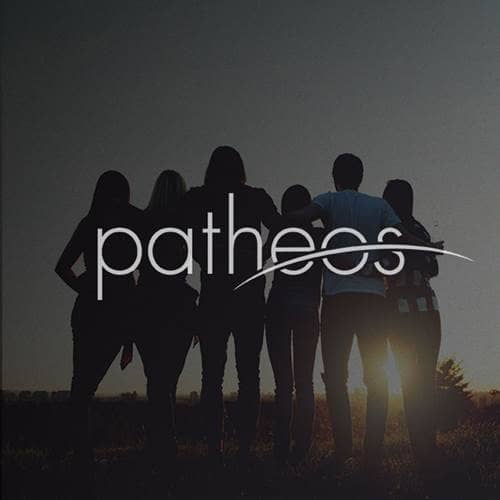- Trending:
- Pope Leo Xiv
- |
- Israel
- |
- Trump
- |
- Social Justice
- |
- Peace
- |
- Love

RELIGION LIBRARY
Baha'i
Community Organization
Whenever a community of Baha'is develops in a locality, Baha'u'llah's teachings instruct them to establish certain institutions. Provided that there are at least nine adult Baha'is resident, they elect a local spiritual assembly. This body has the responsibility to spread the Baha'i Faith in its area of jurisdiction; to establish children's classes and study classes; to oversee Baha'i marriages and funerals; to organize holy day observances and the Nineteen-Day Feast; to arbitrate in disputes between Baha'is if called upon to do so; to represent the Baha'is in relations with the government; to protect the Baha'i Faith from attacks upon it; and to provide direction to the community. Its wider duties involve providing humanitarian assistance to the poor, sick, disabled, orphaned, and destitute. The members of these assemblies are called upon to have regard for the interests of the whole community and indeed for the people of the world in the decisions they make, rather than focusing on narrow parochial concerns.
All of the Baha'is in a country elect delegates who attend a national convention, which is at present held annually. Here the delegates elect nine individuals to form the national spiritual assembly. Any adult Baha'i in a country is eligible to be elected to this body. It has broadly the responsibilities in relation to a nation that the local assembly has over its locality.
Every five years, at present, the members of the National Spiritual Assemblies of the world come together to elect the Universal House of Justice, the supreme institution of the Baha'i world. This institution in based at the Baha'i World Centre in Haifa, Israel.
As well as directing the affairs of the Baha'i world at the international level and supervising the Baha'i interactions with international bodies, such as the United Nations, this body is empowered by Baha'u'llah's instructions to create laws in areas where he had not given laws. It has preferred, however, since its inauguration to lay out general spiritual principles concerning current issues—such as contraception, abortion, and euthanasia—and leave it to individual Baha'is to come to their own decisions about how to act in particular situations. According to the Baha'i scriptures, the Universal House of Justice is divinely and unerringly guided in carrying out these functions.
Baha'i elections have particular features that make them different from other elections. The formation of parties and interest groups are believed to negate the unity that Baha'is are trying to establish. Nomination of candidates and electioneering are therefore prohibited. Electors are called upon to vote by secret ballot for people of capacity and competence who have a well-trained mind, mature experience, and demonstrable spiritual qualities.
As well as these elected positions, there is a range of other appointed positions, called counselors and auxiliary board members, who are called upon to encourage the Baha'i community to propagate the Baha'i Faith and to guard against schism and external attacks. These appointed positions do not, however, have authority.
The primary instrument for decision making in all Baha'i institutions, and indeed whenever Baha'is meet, is the consultative process. Baha'is are called upon to approach this process in a spiritual and united manner, with their minds freed from prejudices and presuppositions. Under ideal circumstances, they should ascertain the facts and then discuss these in a frank and open manner; they should offer their ideas as a contribution to the discussion but not feel so attached to them that they feel obliged to press them on the group or defend them if others voice a different viewpoint; and they should express their views with courtesy, dignity, care, and moderation. As the discussion proceeds, the preference is for a consensus to be achieved but if that does not occur then the majority vote should prevail. Once a decision has been reached, its implementation is also part of the consultation process. Clear lines of action should be agreed upon. It is, moreover, incumbent according to the Baha'i teachings that everyone support the action agreed, even if they voted against it. In this way, if the decision is wrong, it will become evident more quickly, since no one can then say that any failure is due to some people obstructing implementation.
The bedrock of Baha'i community life is the Nineteen-Day Feast and the commemorations of the holy days. Most Baha'i communities will have a range of other activities, including meetings to provide information to those enquiring about the Baha'i Faith, devotional meetings, study groups, children's and junior youth activities, and other community gatherings.
Funds for Baha'i purposes are only collected from among Baha'is. There is a voluntary donation, called Huququ'llah (the Right of God), of 19 percent of the leftover income after all needful expenses have been paid. This is administered by the head of the religion (at present the Universal House of Justice) but is often used to support weaker Baha'i communities. In addition there are local and national Baha'i funds as well as funds for special purposes such as the building of Houses of Worship. Contributions to all of these are voluntary and are considered a spiritual obligation, but they are not sought by anyone or externally assessed.
Study Questions:
1. What is a “local spiritual assembly” and what are its responsibilities?
2. What is the difference between Baha'i elections and the elections that occur for a town council?
3. What are the features of the Baha'i consultation process?










